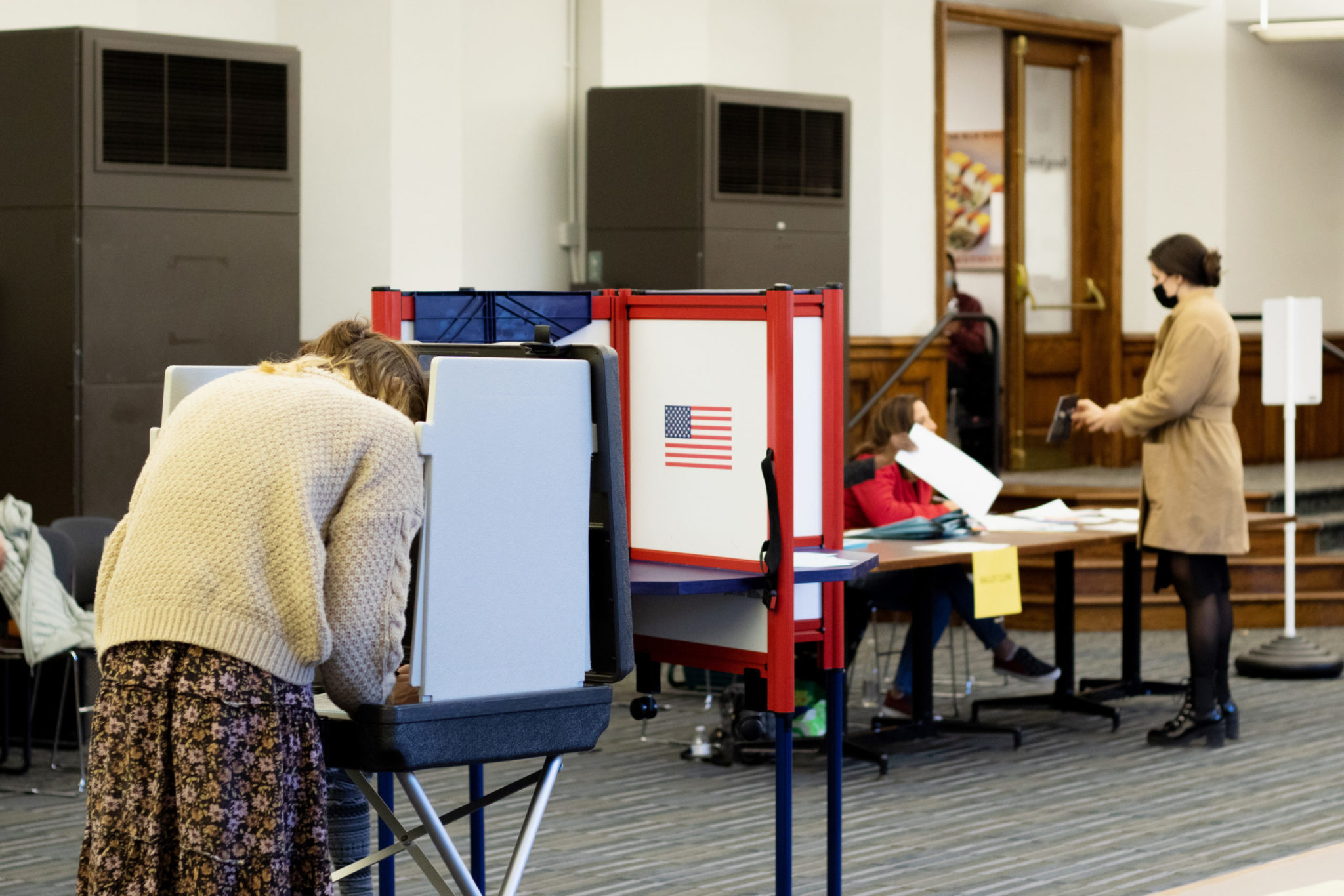Yale students reflect on midterm elections
The News spoke to six students on an unusual night in political history.

Zoe Berg, Senior Photographer
With midterm elections results still trickling in, Yale students are celebrating a number of historical “firsts” while expressing mixed feelings about races in their home states.
Democrat Wes Moore was elected as Maryland’s first Black governor, making him the third Black person elected to any governorship in the country. Massachusetts and Oregon elected the first openly lesbian governors: Maura Healey and Tina Kotek, both of whom are Democrats. Alabama elected its first female senator, Republican Katie Britt, and Arkansas elected its first female governor, Republican Sarah Huckabee Sanders. Meanwhile, Florida elected Democrat Maxwell Frost, the first Gen Z member of Congress.
The News spoke to six students about their experience voting in this election and viewing the results.
“It is historic,” said Michelle Lee ’26, who is from Maryland. “I honestly did expect it, though, because I know that at least in my neighborhood, there was a lot of support for Wes Moore. I think it’s a really monumental moment for Maryland, but I know that other states haven’t seen the same successes.”
Graham Litz ’26 told the News he voted by mail ballot in his home town Redding, Conn. Litz said that the most important issues for him in the elections were LGBTQ+ rights, climate change and the fate of democracy in the United States.
Litz considered the election results to be surprisingly positive. Democrats kept control of the Senate and the House remains undecided.
“There was no big red sweep and that to me showed that a lot of people cared about the same issues I care about,” Litz said. “I still worry Democrats won’t be able to get much done over the next two years with such close election results.”
In some elections, the winner has not yet been decided.
For Bryson Gates ’26, who is from Georgia, there will be another election in December for the run-off between Democrat Sen. Raphael Warnock and Republican Herschel Walker.
“I appreciate that it went into a runoff because I didn’t vote the first time, but now that it was so close, it makes me realize how important my vote actually is,” Gates said. “Just because the Senate has already been decided, that does not mean that every senator is not important. I think that if Georgia can continue to turn blue, it will hopefully stay blue in the future.”
Leading up to Nov. 8, Yale Votes helped students to register and vote on election day in New Haven. Sophie Kane ’24, head chair of Yale Votes, wrote in an email to the News that Connecticut makes voting on Election Day “incredibly easy, especially for Yale students.”
Some students, like Maia Roothaan ’26, ended up voting in New Haven because they did not receive absentee ballots from their home state.
Roothan, who is from Illinois, said it was easy to register to vote in Connecticut on the day of elections in New Haven and took only around half an hour.
“I vote Democrat, and thankfully, Illinois is very blue,” Roothaan said. “So my vote wouldn’t have made a big impact — it’s still going to go the way that I wanted it to. But I was definitely sad.”
Roothaan paid close attention to the Illinois gubernatorial race. Democrats sponsored Trump-backed Republican Darren Bailey’s primary campaign, hoping that constituents would not vote for him. This strategy worked out, as Democrat Gov. JB Pritzker won reelection.
While Democrats did well in some states, Republicans won statewide elections in others. In Florida, Republican Gov. Ron DeSantis and Republican Sen. Marco Rubio won reelection by a wide margin.
“I was definitely disappointed,” Isabelle Millman ’26, who is from Florida, said. “It’s not surprising, but it was definitely upsetting to hear. There’s always hope for 2024, but I don’t know.”
While the percentage of Yale students that voted is unknown, Kane said that Gen Z had a historic voting turnout this year — an estimated 27 percent of 18-29 year-olds voted this year.
“With increased electoral participation from our generation, we’re becoming a major voting block,” said Kane. “If this trend continues, you’ll see a lot more candidates and elected officials catering to the needs and concerns of young people.”
New legislators will begin their term Jan. 3, 2023.







